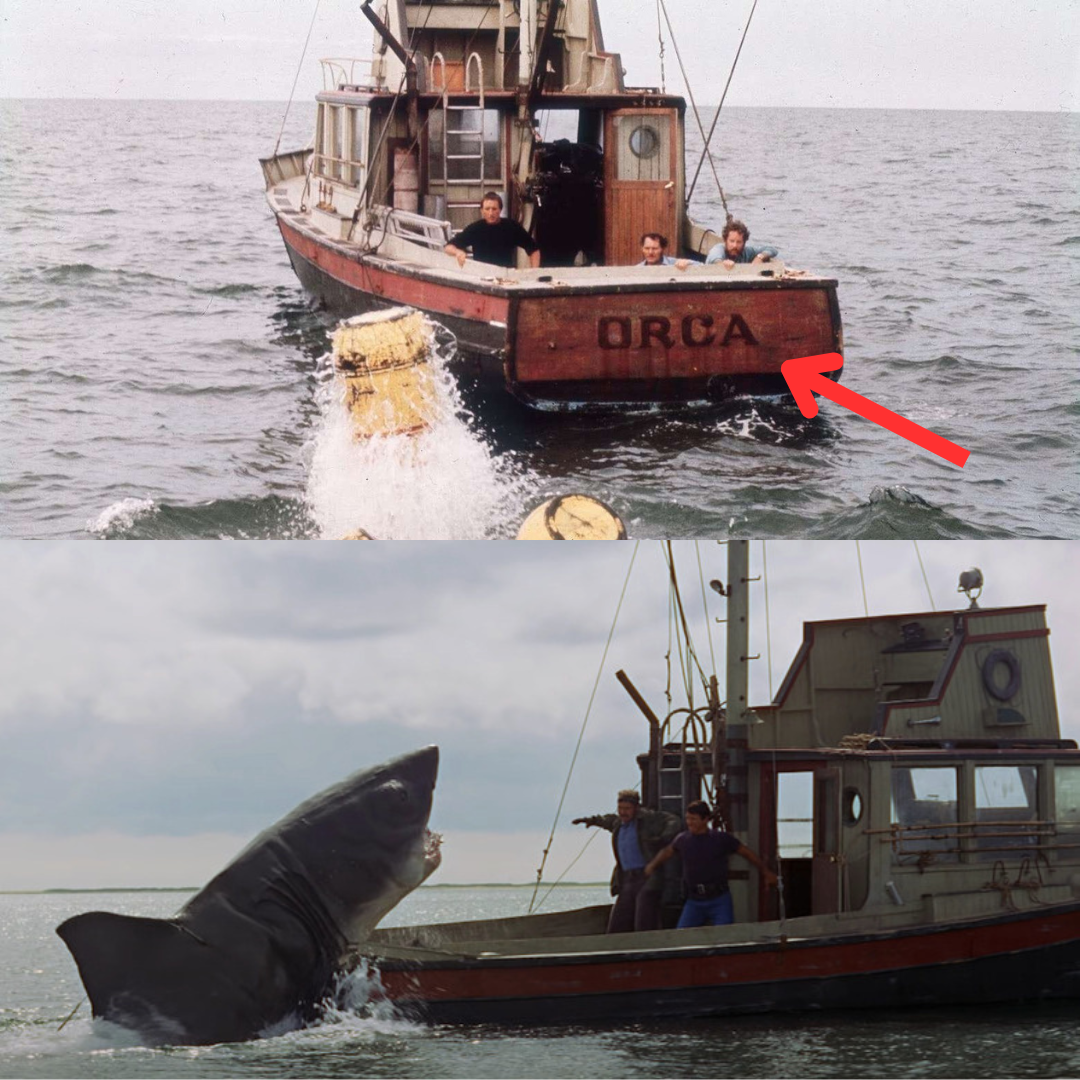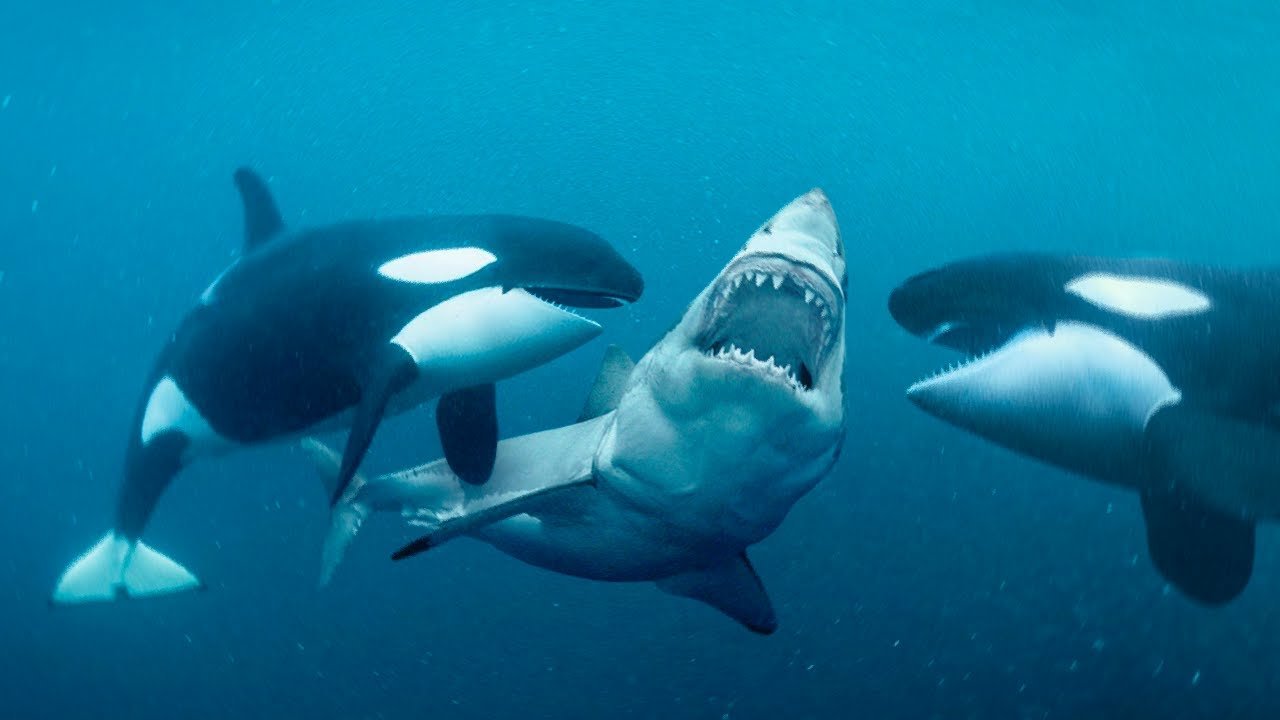Could a Great White shark kill an Orca (Killer Whale)?
Quint from JAWS named his shark hunting vessel ‘Orca’. Knowing that the only ‘natural’ predator of the shark is an Orcinus orca (or Killer Whale), this name reaffirms Quint’s feeling of dominance and invincibility upon the ocean. However, the giant Great White shark from JAWS literally killed Quint’s Orca, first by weakening the transom and then crashing on to it, breaking the back of the boat, killing Quint and sinking the boat in one move. Smart big fish.
Then in the first JAWS sequel JAWS 2, an Orca is found washed up on the beaches off Amity Island with a giant bite mark in it’s torso. Chief Brody arrives on the scene and is joined by Dr Elkins (we assume a scientist from the same local oceanographic institute as Matt Hooper) who explains that if Brody is correct in thinking it was a Great White shark that killed this particular Orca, it would have to be a shark of “considerable size“. Dr Elkins also said “sharks don’t take things personally” …. JAWS The Revenge would beg to differ.
The question of whether a great white shark could kill an orca (also known as a killer whale) is a subject of debate among marine experts. While interactions between great white sharks and orcas are rare and difficult to observe in the wild, there have been a few documented incidents that suggest orcas may have the upper hand in such encounters.
Orcas are highly intelligent and social predators known for their cooperative hunting strategies. They are known to prey on marine mammals, including sharks, in some regions. When orcas target a shark, they often work together as a group, using their intelligence, speed, and strength to their advantage. They may ram the shark, flip it upside down, or target its vulnerable gills to incapacitate it.
Great white sharks, on the other hand, are formidable predators themselves, with powerful jaws, sharp teeth, and impressive swimming abilities. They typically feed on smaller marine mammals, such as seals and sea lions. While they are known for their strength and agility, they may not possess the same level of cooperative hunting skills as orcas.
“In recent years we’ve discovered that Orca and Great whites have a pretty dynamic relationship in the oceans. Orcas are well and truly the apex predator within this dynamic. Their social behaviour allows them to plan hunting strategies that far outweigh any great white defensive strategies. This means there really is little chance for great whites against Killer whales, other than immediately fleeing the area (which they are known to do). The only situation where a great white might be able to kill an orca, is if that orca was alone (without a pod), and only if it was severely injured or fatigued.”
Given the scarcity of documented interactions between great white sharks and orcas, it is challenging to definitively determine the outcome of a confrontation between the two species. However, based on the available evidence and observations, it appears that orcas may have the advantage in such encounters due to their intelligence, social structure, and specialized hunting techniques.
It's important to note that nature can be unpredictable, and individual circumstances may vary. Interactions between species in the wild are influenced by numerous factors, including the size, age, and health of the individuals involved, as well as environmental conditions and other variables.
In summary, while a great white shark is a formidable predator, it is believed that an orca may have the ability to overpower and potentially kill a great white shark through their cooperative hunting strategies and intelligence.
Words by Ross Williams
Subscribe to Kristian Parton’s YouTube channel ‘Shark Bytes’
If you would like to write for The Daily Jaws, please visit our ‘work with us’ page
For all the latest Jaws, shark and shark movie news, follow The Daily Jaws on Instagram, Twitter and Facebook.



